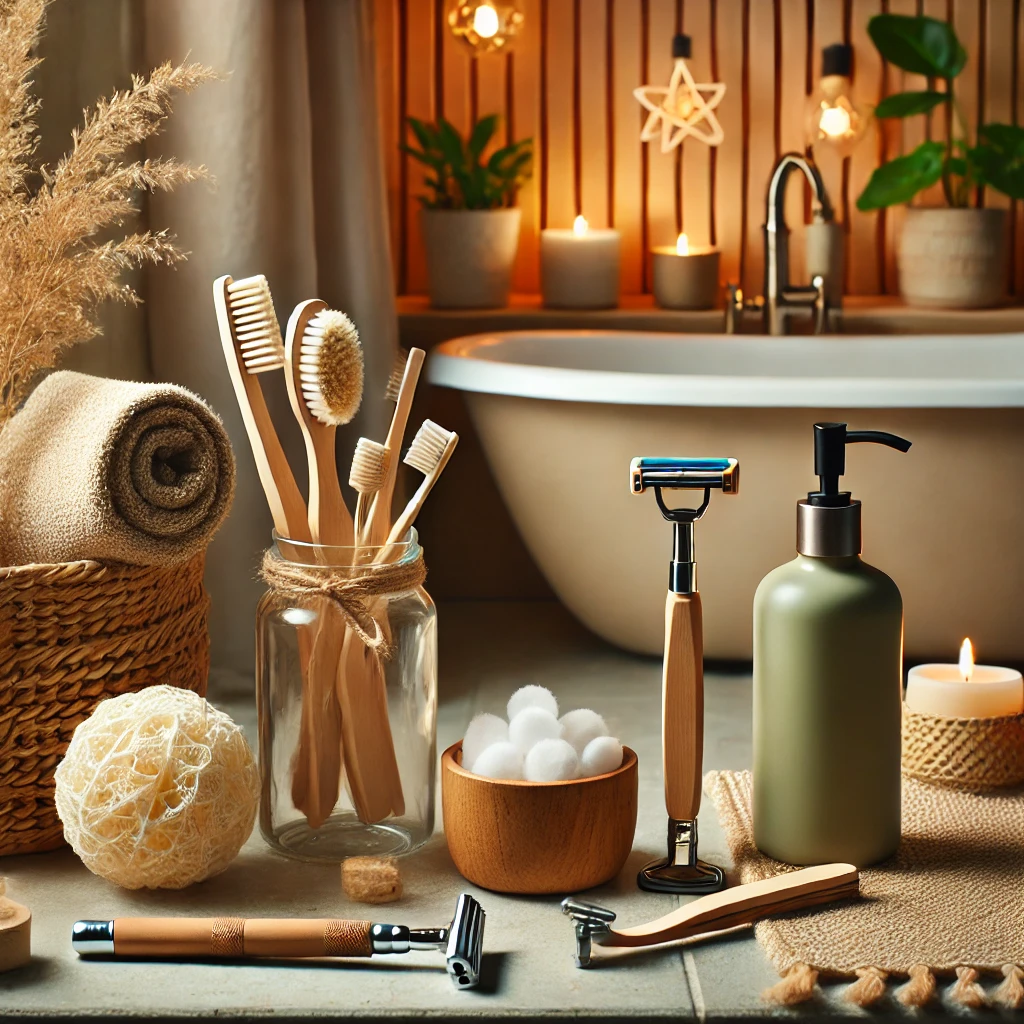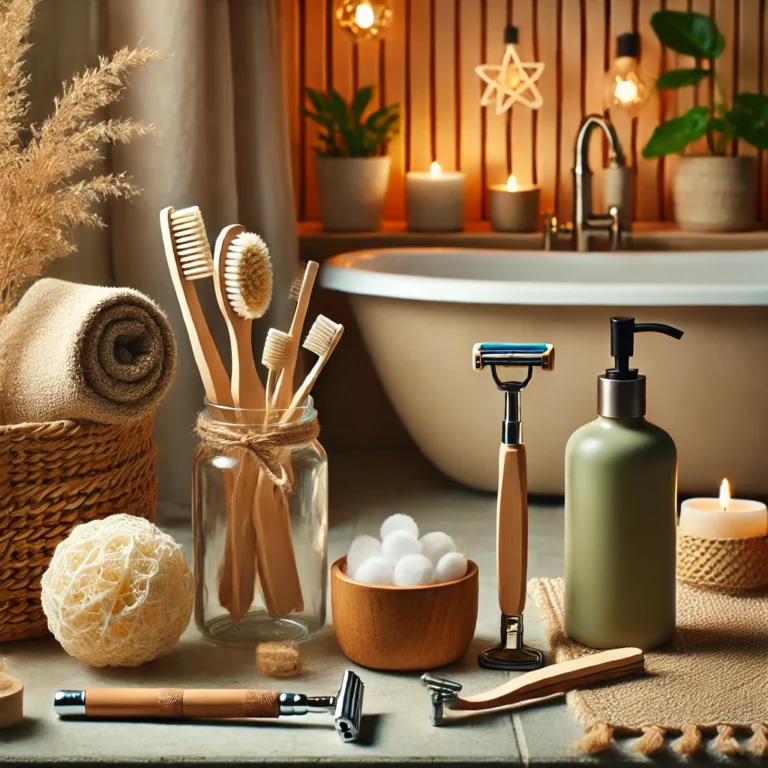Physical Address
304 North Cardinal St.
Dorchester Center, MA 02124
Physical Address
304 North Cardinal St.
Dorchester Center, MA 02124


Have you ever wondered how much waste your bathroom routine creates? From disposable razors to plastic bottles, the bathroom can be a hotspot for single-use products that end up in landfills. Transitioning to a zero-waste bathroom is simpler than it seems, with plenty of sustainable alternatives that are effective, affordable, and eco-friendly. Here’s a guide to essential zero-waste bathroom swaps that can help you reduce waste and create a cleaner, greener bathroom routine.
The bathroom is often overlooked when it comes to reducing waste, but it’s an area where small changes can have a significant impact. Each year, millions of plastic bottles, toothbrushes, and disposable razors end up in landfills or oceans, contributing to pollution and harming wildlife. According to the National Geographic, over 8 million tons of plastic waste enter the oceans annually.
Switching to zero-waste bathroom products can reduce plastic use, lower your carbon footprint, and support a more sustainable lifestyle. By choosing products made from biodegradable or reusable materials, we’re creating a future with less waste, one bathroom routine at a time.
Traditional plastic toothbrushes are a major contributor to bathroom waste. Bamboo toothbrushes are a sustainable alternative—they’re biodegradable, eco-friendly, and just as effective. Look for brands that use compostable materials for both the bristles and handle.
Example Tip: To dispose of a bamboo toothbrush, remove the bristles with pliers and compost the handle. Some brands, like Brush with Bamboo, offer completely compostable options.
Switching from liquid shampoo to solid bars is a great way to eliminate plastic bottles. Solid shampoo and conditioner bars last longer than liquid alternatives and are often made with natural, nourishing ingredients. Bars from brands like Ethique come in compostable packaging, helping you reduce bathroom waste even further.
Using bars instead of bottled products is a simple swap that can make a big difference in cutting down plastic waste.
Disposable razors may be convenient, but they contribute a huge amount of waste. Safety razors, on the other hand, are a durable, reusable alternative that offers a close shave without the plastic waste. While the initial cost may be higher, safety razors save money in the long run since you only need to replace the blades.
Look for razors from brands like Albatross, which offers blade recycling programs to further reduce waste.
If you use disposable cotton rounds for makeup removal or skincare, consider switching to reusable options. Reusable cotton rounds are washable, soft, and gentle on the skin. They’re perfect for makeup removal, applying toner, and even cleansing.
Simply use, wash, and repeat. This easy swap is budget-friendly and significantly reduces the amount of bathroom waste.
Traditional floss is often made from plastic and comes in non-recyclable packaging. Biodegradable dental floss, made from materials like silk or corn fibers, is a more sustainable choice. Brands like Dental Lace provide floss in reusable glass containers, minimizing waste.
For those who enjoy exfoliating, natural loofahs or konjac sponges are excellent zero-waste alternatives to plastic-based shower poufs. Loofahs and konjac sponges are compostable, last longer, and provide gentle exfoliation.
Konjac sponges, made from the konjac plant, are particularly soft and great for facial cleansing. When they’re worn out, simply compost them!
Switching to a zero-waste bathroom doesn’t have to be overwhelming. Here are a few tips to help make the transition smoother:
By gradually incorporating these zero-waste products, you can build a sustainable bathroom routine that reduces your impact on the planet.
Sarah, a teacher from Canada, decided to reduce her bathroom waste after learning about the impact of plastic pollution. She started by replacing her plastic shampoo bottles with shampoo bars and using a bamboo toothbrush. Over time, Sarah swapped out her disposable razors for a safety razor and switched to reusable cotton rounds. Not only did she notice a decrease in her waste, but she also found that her bathroom routine felt simpler and more intentional.
Stories like Sarah’s show how small changes can create a big impact. At EcoTipsEveryday, we believe that making sustainable choices in every part of our home brings us closer to a zero-waste lifestyle.
Creating a zero-waste bathroom is about making thoughtful choices that benefit both you and the planet. By switching to essentials like bamboo toothbrushes, reusable cotton rounds, and biodegradable floss, you can reduce waste and simplify your routine.
Question for You:
Have you tried any zero-waste bathroom products? What swaps have made the biggest difference for you? Share your tips in the comments, and explore our other articles for more ideas on living sustainably.
Let’s take small, impactful steps toward a cleaner, greener world. Together, we can build a zero-waste bathroom that reflects our values and supports a sustainable future.